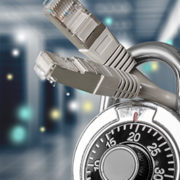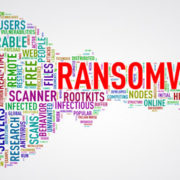Is your business wireless network safe?
Your wireless business network is almost certainly a central part of the productivity of your organization. But because Wi-Fi offers a direct path to vital parts of your network, your wireless network is a prime target for cyberattack.
Businesses need to maintain a strong wireless security profile to prevent losses. The damage caused by malicious actors is real and expensive.
Password management, physical security, limited access and incident monitoring greatly increase your digital defenses, increasing the safety of business networks.
Change passwords often
When setting up your wireless business network, your router will come with a default password. Changing this password needs to be one of the first security tasks completed when the system goes online.
Typically, the default password can be found directly on the hardware or through a quick internet search. Talk about an easy way for a hacker to access your network.
For a secure password we suggest sticking to standard best practices—a mix of uppercase, lowercase, numerical and special characters reduces the odds of a password hack. Information which directly relates to an employee or the company itself should never be part of the password.
Requiring a password change on a periodic basis helps to improve the security of front-end network connections. Avoid repeating the use of recent passwords, which may have been accidentally compromised.
Limit wireless access
The fewer people who access your wireless network, the better. Access should be limited to those who need to use your business network—period. Offering free internet access to visitors is a nice gesture, but this increases the probability of a malicious user attempting to hijack your wireless network.
Guests who need internet access should enter the network through a separate guest connection, which features a password you can (and should) change on a frequent basis. This guest connection should be completely separate from your main business network.
If an employee doesn’t need wireless internet to perform their duty, they can connect through the same guest network. This further limits the number of people who have access to key business servers.
Also, the Wi-Fi signal itself should not reach past office walls. Don’t invite people who aren’t even in your office to attempt to access your internal business network.
Physically lock it up
There’s no reason why anyone should have access to wireless hardware unless they need to interact with the wireless routers. All IT equipment should be locked and secured behind closed doors, preventing tampering or the replacement of wireless network equipment without anyone noticing.
The router and other wireless equipment should require a separate password to access the hardware, making malicious alterations even more difficult at the source of the signal. In fact, you may want to consider completely disabling WPS access, which has the password for access printed on the router.
Incident monitoring and management
The statistics for cyberattacks are shocking. During a recent 12-month period, 75.6% of organizations reported a cyberattack taking place against their networks. Hacking activity continues to spike worldwide.
The globalization of hacking creates an environment where nearly all businesses and organizations can expect an attempted breach in the next few years. When wireless network breaches occur, businesses must act immediately to discover and limit the damage, while preventing another attack.
Incident monitoring helps to reduce the lag time between a wireless network attack and your defense against the hack. Managing these incidents quickly and efficiently ensures that the integrity of your system isn’t seriously compromised for long periods of time.
Given the near-certainty of a cyberattack on your business, implementing strong physical, digital and organizational defense represents the front line of your business wireless network security. Setting up these defenses without monitoring them reduces the effectiveness of wireless internet security.
If you really want to do your due diligence, contact your IT support partner and develop a full cybersecurity strategy to ensure your business network is safe.










